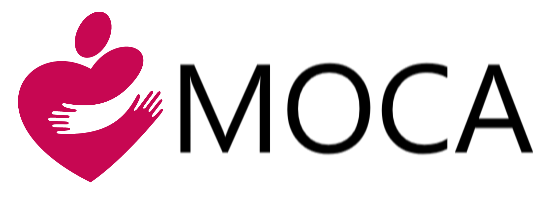Community Services: Missouri Ozarks Community Action
Community Services is funded by the Community Services Block Grant. Initiatives are designed three-fold, fostering self-sufficiency for families, creating positive impact on communities, and sustaining the agency. Programs and projects are identified through the Community Needs Assessment performed every three years. This process identifies what needs are prevalent throughout the communities in MOCA’s service area and what gaps there are in services for low-income or near low-income families.
This program provides automotive maintenance and repairs for families who are working, attending school, or have ongoing health care needs. Participants are screened for eligibility and an appointment is set up with a local automotive repair shop or local vocational—technical school for diagnosis and repair. This services allows the families to continue working, attain their education, or their health needs.
Intensive one on one focused mentorship and guidance for individuals who are seeking gainful employment, career advancement, or continuing education.
Financial and supportive measures are provided to participants who meet the CSBG guidelines and are pursuing a certification in a technical trade.
Programs include:
Welding, C.N.A. / C.M.T.,
Transport/CDL, HVAC
and others—dependent upon participant and program.
Community Gardens brings people from all walks of life who want to connect with each other and the earth. There are free plots for families to plant. Participants can grow; tomatoes, cucumbers, onions, lettuce, flowers, herbs and much more. Produce is taken home by the participants to help provide healthy food choices.
An assortment of classes teaching basic computer skills and beyond. Classes offered are:
Basic Computer Online Tools, Word, Excel, and Publisher.
Tutoring and financial support for individuals who are pursuing their High School Equivalency—HiSET. Employment opportunities are more attainable for individuals who have their High School Diploma or equivalency. Through the HiSET Supports participants are enrolled in case management to give support through their journey.
An assortment of workshops designed to build family strengths around 13 topics; parenting, communication, managing stress, child self-care, food and fitness, healthy home, working goals, positive discipline, money matters, balancing responsibilities, self-esteem, and consumer safety.
Workshops designed to prepare individuals and families for the “what ifs” of natural and man-made disasters. Topics include:
Tornados, Lightning,
Flooding, Fire,
Earthquakes, Poisoning,
Chemical Emergency
Extreme Summer Heat,
Extreme Winter Weather
This program provides tools to: make positive spending decisions, order and fix credit reports, avoid tricks and traps in choosing financial products, make decisions about repaying debts, keep track of income and bills, and decide if a checking account is needed.
Collaborative group meetings that provide participants an opportunity to examine the impact poverty has on individuals, families, and community. Participants develop a mental model of poverty that forms the basis of housing, health, jobs, and community condition investigations. Developed by Dr. Phil DeVol following Ruby Payne’s teachings on the impact of poverty.
A 12-week curriculum designed to provide low-income individuals the opportunity to develop leadership skills that may be utilized with local community groups, non-profit boards, school-based organizations and other opportunities.
An intentional community initiative designed to engage all aspects of the community to address local causes and conditions of poverty. Community Organizers work with community entities to host Focus Group meetings, interviews, and one on one input identifying the needs within the community.
Families participate in a basic intake where agency and community referrals are made and documented through the agency data system. Referrals are based on the identified needs of the family and may include community and agency projects or programs.
A three hour simulation designed for those who work with families in poverty or are vested in the community. Participants are challenged to meet basic needs for their family with very limited resources. All family scenarios are based on Missouri families—Only the names have changes.
An assortment of topics focused on individual and family growth, gaining self initiative and confidence and advocating for one’s self. Topics include—decision making, critical thinking, problem solving, negotiation skills, and creative thinking.
Community Coordinators provide learning opportunities to local coalitions, chambers, economic development entities and others centered around the realities of poverty at the local level, community members are invited to participate with existing teams to develop, enhance and identify local solutions to the overall causes of poverty within that community.
Teaches critical thinking skills through reflection, discussion, small group work and role plays. Topics include: Attitude Problem Solving, Responsibility Preparing for Communication in the Workplace, Decision Making.
A guide to available resources within your county.
Email: communityservice@mocacaa.org.
 .
.
